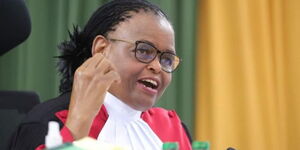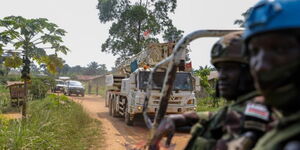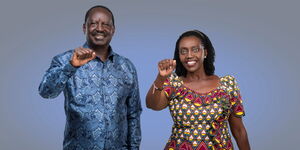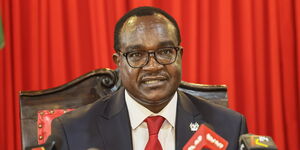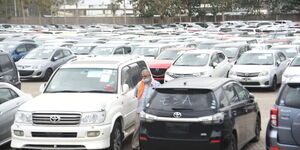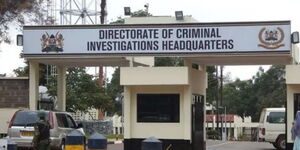Kenya is on the verge of sealing a historic diplomatic shift, edging closer to establishing a full-fledged embassy in Morocco—a significant development after decades of cautious relations. On August 30, Kenya's ambassador to Morocco, Jessica Muthoni Gakinya, presented her credentials, marking the final step towards formalising ties between the two nations.
This diplomatic manoeuvre is more than just a bilateral move; it signals Kenya’s strategic positioning within the African Union (AU) as the country vies for greater influence in the upcoming African Union Commission (AUC) elections.
Why it matters: The establishment of an embassy in Morocco will elevate Kenya’s diplomatic presence in North Africa, joining embassies in Egypt and Algeria. This move not only solidifies Kenya's engagement with three of the region’s most influential economies but also represents a broader geopolitical play.
As Kenya prepares for the AUC elections scheduled for February next year, the timing of this diplomatic overture to Morocco is no coincidence. The government is keen to secure the support of Morocco, a formidable diplomatic force within the AU, for Raila Odinga, Kenya’s candidate for the AUC Chairmanship.
Dig dipper: The relationship between Kenya and Morocco has long been defined by a cautious approach, particularly given Kenya’s historical support for the Sahrawi Arab Democratic Republic (SADR), a region in Western Sahara whose sovereignty is disputed by Morocco.
President William Ruto’s administration has taken bold steps to recalibrate this stance, moving away from decades of backing the African Union’s call for Sahrawi self-determination. This shift was underscored by the recall of Peter Katana Angore, Kenya’s ambassador to SADR, signaling a clear pivot towards strengthening ties with Morocco.
President Ruto’s intentions were clear from the onset of his administration. As early as January 2023, during the launch of the Kenyan Chancery in Dakar, Senegal, he announced plans to open an embassy in Morocco by the year’s end. Although this self-imposed timeline was not met, Kenya’s recent actions demonstrate a commitment to realising this goal.
The presentation of credentials by Ambassador Gakinya is a crucial step in this process, and approval by Morocco’s King Mohammed VI would solidify Kenya’s diplomatic presence just as the AUC elections approach.
How we got here: This recalibration of Kenya’s foreign policy is not without historical context. Kenya’s previous administrations, particularly under former President Daniel Moi, maintained a strong relationship with Algeria, which supports the Polisario Front—the political arm of the SADR.
Moi, as Chairperson of the Organisation of African Unity (OAU), played a pivotal role in the Western Sahara conflict, hosting a summit in Nairobi in 1981 where Morocco’s King Hassan II reluctantly agreed to a plebiscite in Western Sahara.
However, declassified reports suggest that the King’s agreement was more about controlling the referendum’s outcome than a genuine concession.
Kenya’s current shift towards Morocco reflects a pragmatic approach, recognising the kingdom’s growing influence within the AU. The country’s decision to open an embassy in Rabat, and to reassess its stance on the Western Sahara issue, illustrates a strategic realignment aimed at bolstering its diplomatic clout within the continent.
Politics at play: With the AUC elections looming, Kenya is positioning itself to avoid the pitfalls of past campaigns, such as the unsuccessful bid by former Foreign Affairs Cabinet Secretary Amina Mohammed.
This diplomatic shift could have far-reaching implications for Kenya’s standing in the AU and its broader foreign policy. By courting Morocco, Kenya is not only seeking to secure votes for its AUC candidate but also signaling a readiness to engage with the complex dynamics of North African politics.


